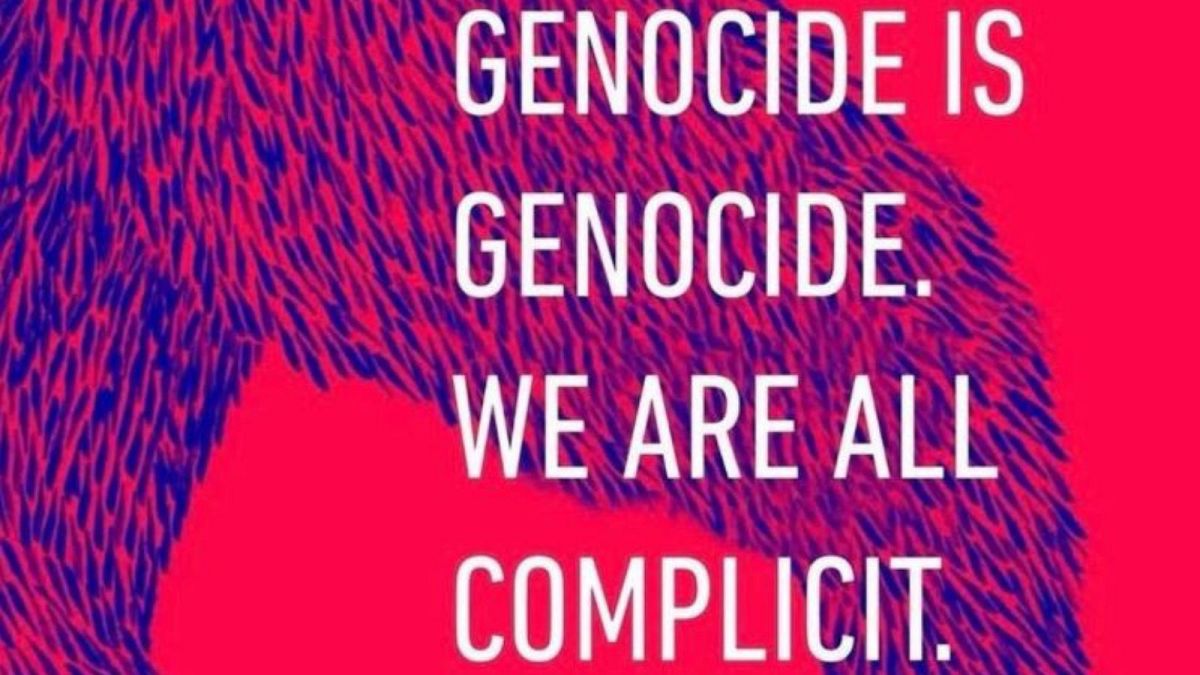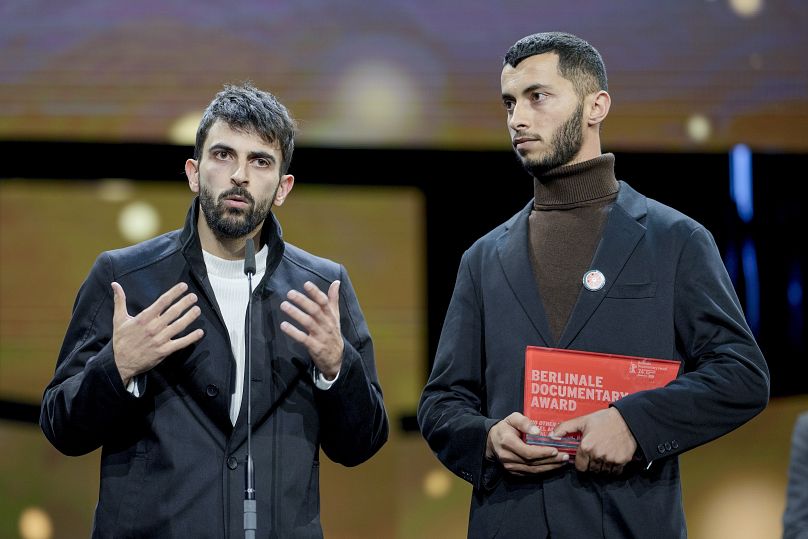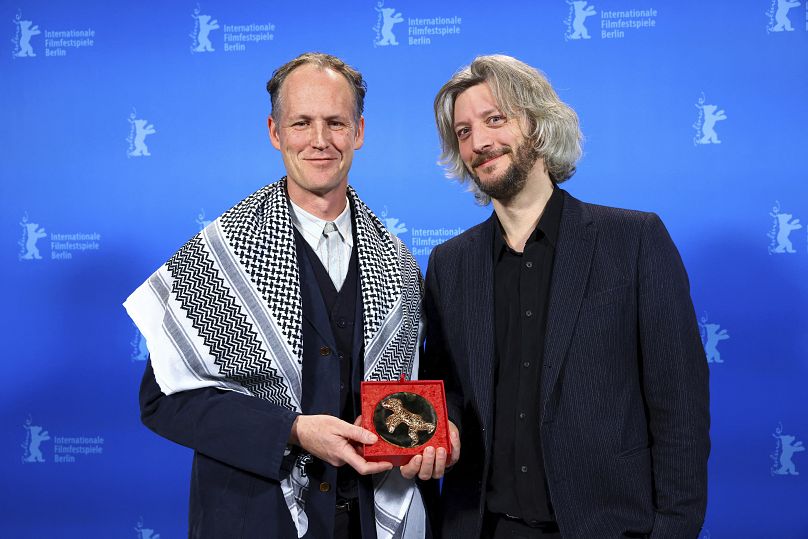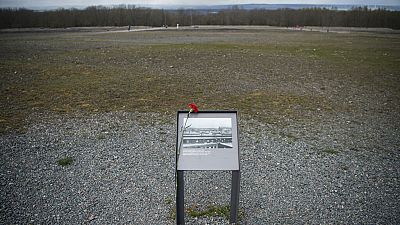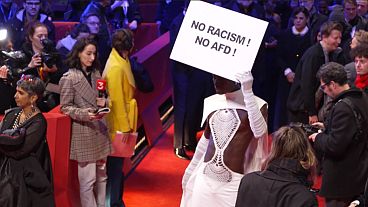A highly politicized edition of the Berlin International Film Festival ended last weekend, but divisions surrounding political messaging are ongoing. The Berlinale is now embroiled in controversy which severely tarnishes its reputation. Here’s why.
The Berlin Film Festival prides itself on being a politically active film festival, but they were not going for this... The end of this year’s 74th edition has escalated beyond all expectations.
The Berlinale said yesterday (Monday 26 February) that it has filed criminal charges following the hacking of its Panorama sidebar section’s Instagram social media site, which was used to post “anti-Semitic” messages.
The Berlinale in a statement said the Instagram channel for its Panorama section was briefly hacked during the weekend, post-awards, and “anti-semitic image-text posts about the Middle East war with the Berlinale logo were posted on the channel.”
The infographics uploaded by the hackers included statements like “Genocide is Genocide. We are all complicit,” and that followers need to “shed the idea that German guilt absolves us of our country’s history or our current crimes.” They also called for an “immediate and permanent ceasefire” in Gaza.
One post read: “From our unresolved Nazi past to our genocidal present — we have always been on the wrong side of history. But it’s not too late to change our future.”
The organizers said the statements did not come from the Berlinale or represent the festival’s stance on the Israel Gaza war.
“The Instagram channel of the Berlinale Panorama section was briefly hacked and anti-Semitic image-text posts about the Middle East war with the Berlinale logo were posted on the channel. These statements do not originate from the festival and do not represent the festival’s stance.”
The festival added: “The Berlinale condemns this criminal act in the strongest possible terms and has deleted the posts and launched an investigation. In addition, the Berlinale has filed criminal charges against unknown persons. The State Criminal Office (LKA) has begun an investigation.”
After a politically charged edition, festival organizers also attempted to distance the Berlinale management from the stances taken by some of the awards winners.
A controversial awards ceremony
The closing ceremony was used by some filmmakers to make statements.
Golden Bear winner Mati Diop, who won for her documentary Dahomey, made a direct political statement when accepting her award: “I stand with Palestine.”
Before her acceptance speech, US filmmaker Ben Russell, who accepted an award for his Encounters section film Direct Action, was seen wearing a keffiyeh - a sign of Palestinian solidarity.
Elsewhere, American filmmaker Eliza Hittman used her time on stage to call for a ceasefire in Gaza.
“As a Jewish filmmaker who won the Silver Bear in 2020, it is important for me to be here,” Hittman said. “There is no just war, and the more people try to convince themselves there’s a just war, the more they commit a grotesque act of self-deception.”
One of the night’s most charged speeches came from Basel Adra and Yuval Abraham, a Palestinian-Israeli filmmaking duo behind the Berlinale documentary award winner No Other Land.
Adra used his acceptance speech to say that it was difficult to celebrate while his Palestinian compatriots in Gaza were being “slaughtered and massacred.” He called on Germany “to respect the UN calls and stop sending weapons to Israel.”
Abraham, then took to the stage; “We are standing in front of you. Now, we are the same age. I am Israeli, Basel is Palestinian. And in two days, we go back to a land where we are not equal.”
He continued: “I am under civilian law; Basel is under military law. We live 30 minutes from one another but I have voting rights. Basel does not have voting rights. I am free to move where I want in this land. Basel, like millions of Palestinians, is locked in the occupied West Bank. This situation of apartheid between us, this inequality, has to end.”
After the No Other Land acceptance speech, its Abraham started receiving death threats.
Berlin’s mayor chimes in
The speeches of Abraham and Adra were criticized by the Mayor of Berlin, Kai Wegner - of the Christian Democratic Union party.
On X, he wrote: “Anti-Semitism has no place in Berlin, and that also applies to the art scene. I expect the new management of the Berlinale to ensure that such incidents do not happen again.”
Wegner did not make a specific reference to which aspect of the ceremony he took issue with, adding: “Berlin has a clear stance when it comes to freedom. Berlin is firmly on Israel’s side. There is no doubt about that. Full responsibility for the deep suffering in Israel and the Gaza Strip lies with Hamas. It [Hamas] alone has the power to end this suffering by releasing all the hostages and laying down her weapons. There is no room for relativization here.”
Berlin organizers insisted the “sometimes one-sided and activist statements made by award winners were an expression of individual personal opinions.”
“They in no way reflect the festival’s position,” they added, once more distancing themselves from controversial remarks in support of Palestine.
“We understand the outrage that the statements made by some of the award winners were perceived as too one-sided and, in some cases, inappropriate,” outgoing Berlinale executive director Mariëtte Rissenbeek added in her own statement.
“In the run-up to and during our festival, we made it very clear what the Berlinale’s view of the war in the Middle East is and that we do not share one-sided positions,” she added. “However, the Berlinale sees itself – today, as in the past – as a platform for open dialogue across cultures and countries. We must therefore also tolerate opinions and statements that contradict our own opinions, as long as these statements do not discriminate against people or groups of people in a racist or similarly discriminating way or cross legal limits.”
This year’s Berlinale was Carlo Chatrian and Rissenbeek’s final edition in charge.
The next edition will be led by former London Film Festival head Tricia Tuttle, who was in the audience at the closing ceremony.
A bad look for the Berlinale
The controversy raises important questions about free speech, and how a festival that purports to be about celebrating open dialogue can distance themselves from the opinions of artists they invited in the first place.
These artists peacefully expressed themselves, and to hear the mayor of Berlin describe the awardees’ expressions of solidarity and demands for a ceasefire as “antisemitic” is depressing to say the least.
"An investigation of what now? God, we are fully through the looking glass / crazy mirror here."
"A number of artists, who are not employees of the festival and are not beholden to it, peacefully spoke their minds about Palestine. What is there to investigate? This is appalling."
"Embarassing for a once vibrant festival"
"Cowardly and pathetic. If Berlinale cannot stand up loudly for its filmmakers' opposition to an unfolding genocide - then what is the point of Berlinale?"
"80 years later and you're still a Nazi festival I see."
"Shame on you. Next year I will think about actively boycotting this festival."
These end of festival incidents have not only angered professionals, critics and Berlinale fans, but put the spotlight on the roles and responsibilities of cultural institutions when it comes to dealing with politically charged issues.
Global cultural events, especially those fostering a space for political debate alongside being a space for artistic expression, have to do better. And while the investigation into the unauthorized post continues, the Berlinale will have to deal with the broader implications for its reputation, which is now tarnished.
Not a great look for a festival that seeks to maintain its role not only in the international film community, but also a bastion of free speech.
